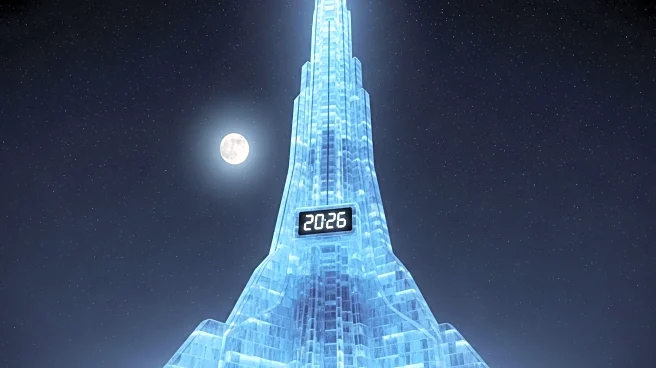What's Happening?
Icy Tower, a popular freeware platformer from the early 2000s, is set to make a comeback with a new release on Steam in 2026. The game's original creators, Johan Peitz and Anders 'Neo' Svensson, announced the remake on October 1, 2025. The new version aims to stay faithful to the original game, which was known for its simple controls, engaging physics, and endless gameplay. Icy Tower was a viral sensation among young internet users in the early 2000s, offering a compelling arcade experience that was accessible on even the most basic computers. The game featured characters like Harold the Homeboy, who players guided to climb as high as possible in a mysterious tower, with the challenge of starting over after any mistake.
Why It's Important?
The return of Icy Tower is significant for fans of retro gaming and those who experienced the original during its peak popularity. The remake taps into nostalgia, potentially attracting both old fans and new players interested in classic gaming experiences. This move reflects a broader trend in the gaming industry where developers are reviving popular titles from the past, leveraging nostalgia to drive engagement and sales. The game's release on Steam, a major digital distribution platform, ensures wide accessibility and could lead to increased interest in retro games, influencing market dynamics and consumer preferences in the gaming sector.
What's Next?
The new version of Icy Tower is scheduled for release on Steam in 2026, and players can already wishlist the game. As the launch date approaches, the creators may release additional trailers or gameplay previews to build anticipation. The gaming community is likely to respond with excitement, and discussions around the game's impact on retro gaming culture may emerge. The success of this remake could encourage other developers to consider similar projects, potentially leading to a resurgence of classic games in modern formats.
Beyond the Headlines
The revival of Icy Tower highlights the cultural impact of early internet gaming and its role in shaping digital entertainment. It underscores the enduring appeal of simple, yet challenging games that offer pure arcade fun without complex narratives or graphics. This development may also prompt discussions on the preservation of digital gaming history and the importance of making classic games accessible to new generations.










